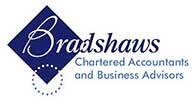Conditions for super-deduction revised
The “super-deduction” is a new tax incentive for businesses to purchase equipment. The qualifying conditions have now been relaxed to allow the tax break for some previously excluded items. What’s the full story?

Super-deduction
In Budget 2021 the Chancellor announced a temporary tax break to encourage businesses to buy new equipment. The incentive is a capital allowance (CA) deduction equal 130% of the equipment’s cost. Assets which normally only qualify for the lower CA of 6% per annum aren’t entitled to the 130% deduction but can claim an initial deduction equal to 50% of the cost; this is called the special rate first year allowance (SR). Only companies can claim the super-deduction or SR.
Leased equipment
Some types of asset were initially excluded from the super-deduction, including leased assets. According to tax and accountancy bodies, in some circumstances this unfairly prevented many businesses from being able to claim the tax break. The good news is that the government has conceded the point and amended the draft legislation to allow the super-deduction for certain types of leased asset.
Who will benefit?
The amendment allows companies to claim the super- deduction for so-called background plant and machinery (equipment) included in buildings. According to the Institute of Chartered Accountants in England and Wales, the new rule ensures “that the allowances are available where a company purchases or constructs a building and fits it out with fixtures and other assets that contribute to the functionality of the building” , as long as the building is for commercial use. The types of leased asset that now qualify for the super-deduction or SR as a result of the amendment include, but are not limited to, water, heating and lighting systems, lifts, safety and fire equipment. Essentially, the cost of any background equipment included in a building now qualifies.
Related Topics
-
Who can't yet sign up for MTD IT?
Making Tax Digital for Income Tax (MTD IT) becomes mandatory from April 2026 for sole traders and landlords with qualifying income over £50,000. However, HMRC’s current guidance makes clear that not everyone can sign up yet. If you are preparing early, are you actually eligible?
-
MONTHLY FOCUS - PROFIT EXTRACTION PLANNING AHEAD OF 5 APRIL 2026
The end of the 2025/26 tax year is fast approaching. In this Monthly Focus we look at ways to get money out of your company tax efficiently, and consider whether limited is still the way to go for your business.
-
HMRC updates advisory fuel rates from 1 March 2026
HMRC has published the latest advisory fuel and electric rates (AFRs) for company cars, effective from 1 March 2026. Several rates have changed since the previous quarter. What should employers be aware of?

 This website uses both its own and third-party cookies to analyze our services and navigation on our website in order to improve its contents (analytical purposes: measure visits and sources of web traffic). The legal basis is the consent of the user, except in the case of basic cookies, which are essential to navigate this website.
This website uses both its own and third-party cookies to analyze our services and navigation on our website in order to improve its contents (analytical purposes: measure visits and sources of web traffic). The legal basis is the consent of the user, except in the case of basic cookies, which are essential to navigate this website.